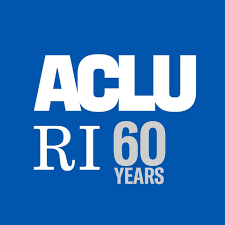
In a major First Amendment case, ACLU of Rhode Island cooperating attorneys David Cass and Lynette Labinger today filed a federal lawsuit challenging Woonsocket Mayor Lisa Baldelli-Hunt’s actions in banning some of her critics from her Facebook page.
The lawsuit is on behalf of two Woonsocket residents, Greg Duhamel and Thomas Dubois, both of whom found themselves blocked from commenting on the Mayor’s Facebook page after they raised questions about her official activities on it. The lawsuit, arguing that the censorship violates their First Amendment rights “to speak and to petition the government for redress of grievances,” states: “Just as public officials may not preclude persons from participating in the public-comment portion of a town hall meeting based on their viewpoints, Mayor Baldelli-Hunt cannot ban users from [her] Facebook page because she dislikes their opinions.”
Mayor Baldelli-Hunt banned Duhamel from her Facebook page last November, after he challenged a post from the Mayor in which she attempted to claim credit for the building of a local skate park. Last month, Dubois, who had many previous interactions with the Mayor’s Facebook page, commented on a post from the Mayor to ask about construction taking place at a local park. His question was quickly deleted, and he, like Duhamel, found himself banned from the page.
The suit notes that Mayor Baldelli-Hunt uses the @LISABALDELLIHUNT Facebook Page to announce, describe, and defend her official policies and her office’s operations; to comment on local issues; to share content produced for the City of Woonsocket; and to communicate with her constituents including responding to their comments. Because of the way she uses this account, Mayor Baldelli-Hunt’s posts have become an important source of news and information about her work. Further, the interactions associated with the posts have become important forums for speech by, to, and about Mayor Baldelli-Hunt.
The lawsuit argues that “Mayor Baldelli-Hunt, in addition to using the @LISABALDELLIHUNT Facebook page as a tool of governance, clothed it in the trappings of her public office,” and that her “persistent invocation of her position as an elected official overwhelms any implicit references one might perceive to any personal use.” Among other indicia of its official imprimatur, the account is under the name “Mayor Lisa Baldelli-Hunt” and lists her status as “government official.”
The suit asks the court to declare the Mayor’s “viewpoint-based banning” of the plaintiffs and others from her Facebook page to be unconstitutional, and to issue an injunction prohibiting her from banning anybody from her page “on the basis of viewpoint.” The suit also seeks an award of nominal damages and attorneys’ fees.
Plaintiff Greg Duhamel said today: “All I did was express concerns about something that Mayor Lisa Baldelli-Hunt posted on her Mayoral Facebook page. In response she blocked me from commenting and she also deleted my comments. She should not be censoring me and others for commenting on items she posts depending on whether she agrees with them or not. I believe in free speech, and what I wrote was protected by the First Amendment.”
Plaintiff Thomas Dubois added: “The questions I asked on the Mayor’s Facebook page were relevant to her post, but I noticed they got deleted. I see many other comments that are complimentary to her that are left up and interacted with by the mayor on a regular basis. My questions were reasonable, and if they were never answered, I wouldn’t have minded, but instead I was promptly blocked from ever interacting with the page. I am concerned about the capacity of an elected official to censor the ability of the public who elects them and to deny them the right to even ask a question publicly. I hope this lawsuit can prevent any further limitations on the right of citizens to address the government.”
ACLU of RI cooperating attorney Lynette Labinger stated: “Facebook and other social media have become powerful tools to allow public officials to get their message out to the general public. But once those officials open up the platform for public discussion and commentary, they don’t get to limit the comments they will accept to only those who voice support. The First Amendment simply does not allow public officials to exclude people from these forums because they disagree with what they have to say.”
More information on the lawsuit, including a copy of the complaint, can be found here.







Comments